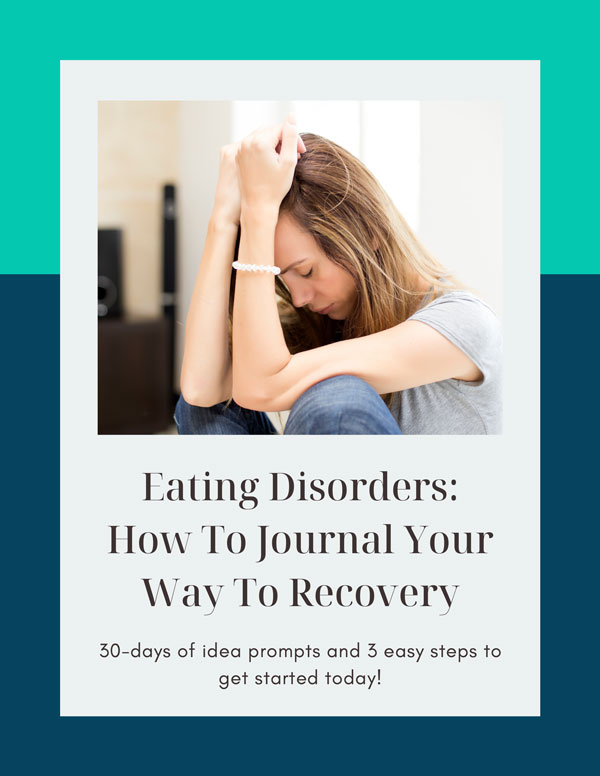Coping With Comments During The Holiday Season
When I mention the topic of the holidays with my clients, often, they express that they are overwhelming and stressful. They report feeling anxious about the upcoming family dinner or a holiday party that they are going to attend. However, as an eating disorder specialist, their anxiety is not always about the food. They express that their anxiety is about possible body-focused comments from family, friends, and even strangers. The possible comment of “You look so skinny” or “Are you going to eat all of that?” So, on top of working hard in recovery, they also may need to field comments about their body, weight, or shape from others.
Just the sheer exposure of seeing other people after two years of quarantining can be a lot and then in addition, the comments. For some reason people think it is ok to make comments about your body, weight, shape, food choices, etc.—newsflash- IT IS NOT OK.
Let us discuss a few ways to field these comments:
MIND YOUR OWN BODY (MYOB)
I recently heard Actress Gabourey Sidibe talk at the Renfrew Professional Conference on Saturday November 13. 2021. She spoke about her eating disorder and her healing process. She reported that attending a six-month Dialectical Behavior Therapy (DBT) program was an essential part of her recovery. She also very openly described the kind and number of hurtful comments that she receives about her body, weight, and shape on social media. One way that she sets boundaries is to use the phrase…Mind your own body (aka MYOB). So instead of the more popular phrase of mind your own business, she changed it from business to body.
I love this! This is my new go-to phrase. It helps to set a boundary and empowers me at the same time. Try this during the holidays and hopefully it will stick.
MY WEIGHT IS THE LEAST INTERESTING THING ABOUT ME
This is one that I personally use often. When I run into someone at a holiday party or a get-together and they mention something about my appearance, comment on my weight, or ask what fitness routine I do, I say “Oh wow, my weight is the least interesting thing about me. Let us talk about something more important, like have you read the new book by Brene Brown, or I started a new knitting class that I really enjoy.” This boundary-oriented statement helps to set a clear limit on what you feel comfortable talking about and what you do not.
I AM IN RECOVERY AND I DO NOT FEEL COMFORTABLE WITH THIS TOPIC
If your family and friends are aware that you are in recovery from an eating disorder, then setting a boundary like this can help- “Talking about your new eating plan is not helpful to my recovery. Let us change the topic.” “It is not helpful for me when you talk about how many calories you burned at the gym this morning.” When my family talks about diets or weight loss/gain I either physically get up and leave the room or express that this topic is not helpful for me, and I want to change the topic. I may specifically point out that certain topics can be triggering or unhelpful to my recovery. I also take this as an opportunity to educate others if they are open to that.
I AM WORKING ON HAVING A HEALTHY RELATIONSHIP WITH FOOD AND NOT FOLLOW DIET-CULTURE
We have all been there. You finally sit down to a holiday meal, and someone brings up the new diet they have started or a new fitness routine with the purpose of changing their body size and shape. They bring up that they have been “good” with food choices, so now they can be “bad” and eat whatever they want at Thanksgiving. UGH- diet culture- sometimes we feel like we cannot get away from it. To practice dismantling the diet culture and set a healthy boundary say “I am working on having a healthy relationship with food and not following diet culture. I do not believe that food is a moral issue, so I would appreciate it if you stopped making these types of comments. Thank you.”
DO NOT ENGAGE
Not engaging is a response! If someone makes a comment on your body, weight, shape, or food you can ignore them. Do not say anything. Or you can change the subject and talk about something else-anything else. You may have some topics in your back pocket like the weather, a new hobby you have tried or something for which you are grateful. Research shows that daily tangible gratitude practice helps to increase the emotion of joy. Now who does not want more joy in their life?
Happy Holidays!
If you are looking for an eating disorder therapist, an eating disorder coach, or are looking for eating disorder resources please reach out at mereditheob@gmail.com.
Full recovery is possible!
Serenity Always,
Meredith


